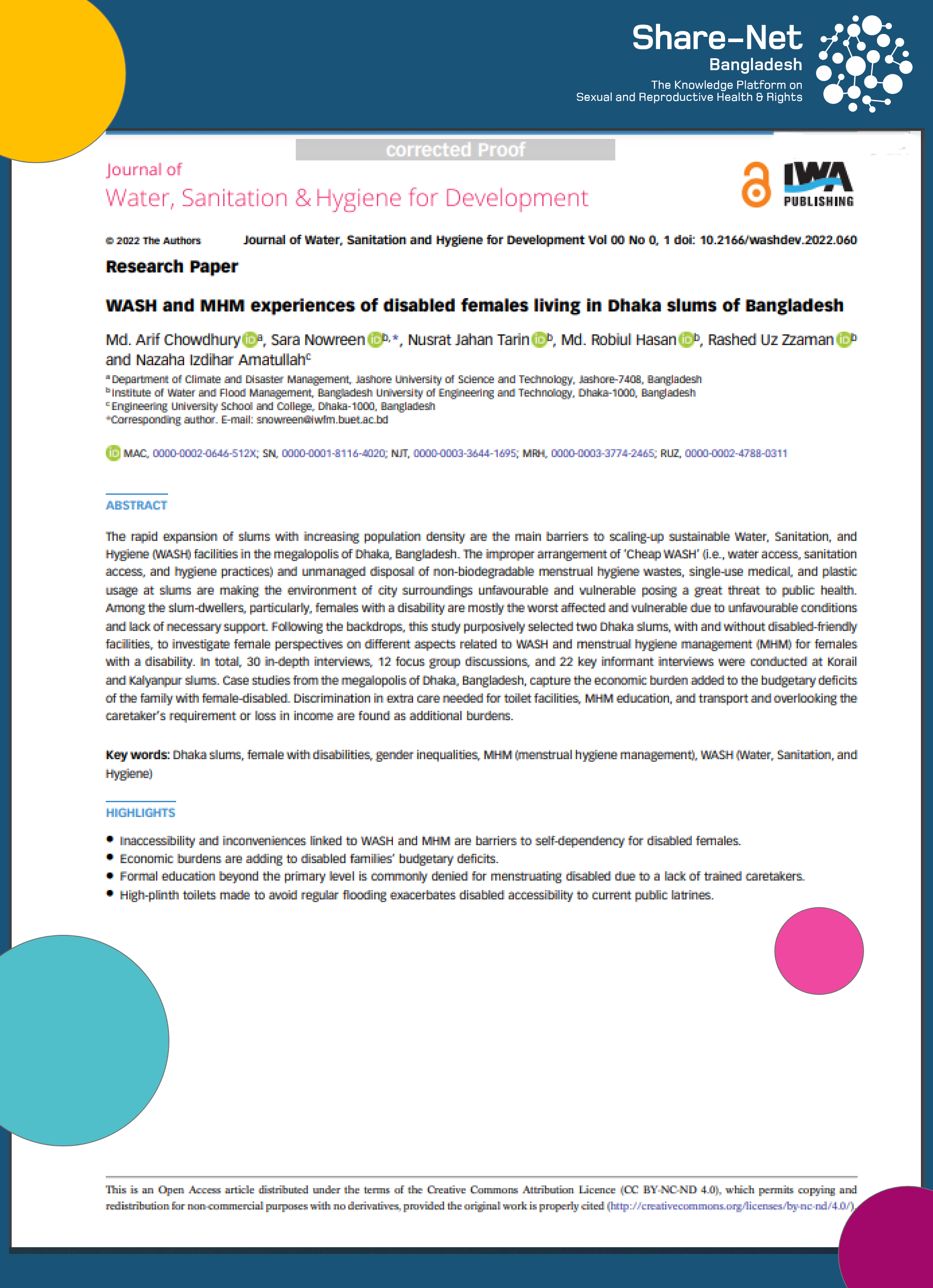WASH and MHM Experiences of Disabled Females Living in Dhaka Slums of Bangladesh
This study purposively selected two Dhaka slums, with and without disabled-friendly facilities, to investigate female perspectives on different aspects related to WASH and Menstrual Hygiene Management (MHM) for females with a disability.
The rapid expansion of slums with increasing population density are the main barriers to scaling-up sustainable Water, Sanitation, and Hygiene (WASH) facilities in Dhaka, Bangladesh. The improper arrangement of ‘Cheap WASH’ (i.e., water access, sanitation access, and hygiene practices) and unmanaged disposal of non-biodegradable menstrual hygiene wastes, single-use medical, and plastic usage at slums are making the environment of city surroundings unfavourable and vulnerable, posing a great threat to public health.
Among the slum-dwellers, particularly, females with a disability are mostly the worst affected and vulnerable due to unfavourable conditions and lack of necessary support. In this study, a total of 30 in-depth interviews, 12 focus group discussions, and 22 key informant interviews were conducted at Korail and Kalyanpur slums. Case studies from the megalopolis of Dhaka, Bangladesh, capture the economic burden added to the budgetary deficits of the family with female-disabled. Discrimination in extra care needed for toilet facilities, MHM education, and transport and overlooking the caretaker’s requirements or loss of income are found as additional burdens.
The study findings indicated that existing policies consider either female or disabled or urban residents or pro-poor as a separate component and do not receive any attention towards integrating the necessary strategies for all components together where ‘No one will leave behind’ or create any pressure on such socially excluded groups with extra economic burden in future. There is a scope to incorporate such unheard voices in SDG (Sustainable Development Goal) tracker, ‘UN Convention on the Rights of the Persons with Disabilities’; national legal frameworks like the revision of Pro-Poor Strategy for Water and Sanitation 2020, etc.
In particular, incorporating observations from this study in Dhaka Detailed Area Plan (2016–2035) can help accelerate prioritising structures for low-income-group and thus leverage the momentum of meeting the SDG targets 3 (good health and well-being), 5 (achieve gender equality and empower all women and girls) and 6 (clean water and sanitation). In this context, the study recommends analysing site-specific Strengths, Weaknesses, Opportunities, and Threats (SWOT) of the current situation of urban pro-poor disabled females. By ensuring right-to-water, more precisely, water justice, a foundation of social justice can be employed.
Share-Net Bangladesh, a country hub of Share-Net International, funded the data collection part of the research work under the “Young Researcher Fellowship Grant 2019” received by Md. Arif Chowdhury.
Download WASH and MHM Experiences of Disabled Females in Dhaka Slums
